Islandisation
a strategy, that seeks disengagement from interconnected networks. With contextual roots in historical urbanization, islandisation signifies a new era of Anthropocene coastal adaptation, divergent from traditional resilience strategies. It serves as a protective shield, selectively severing detrimental ties while upholding others.
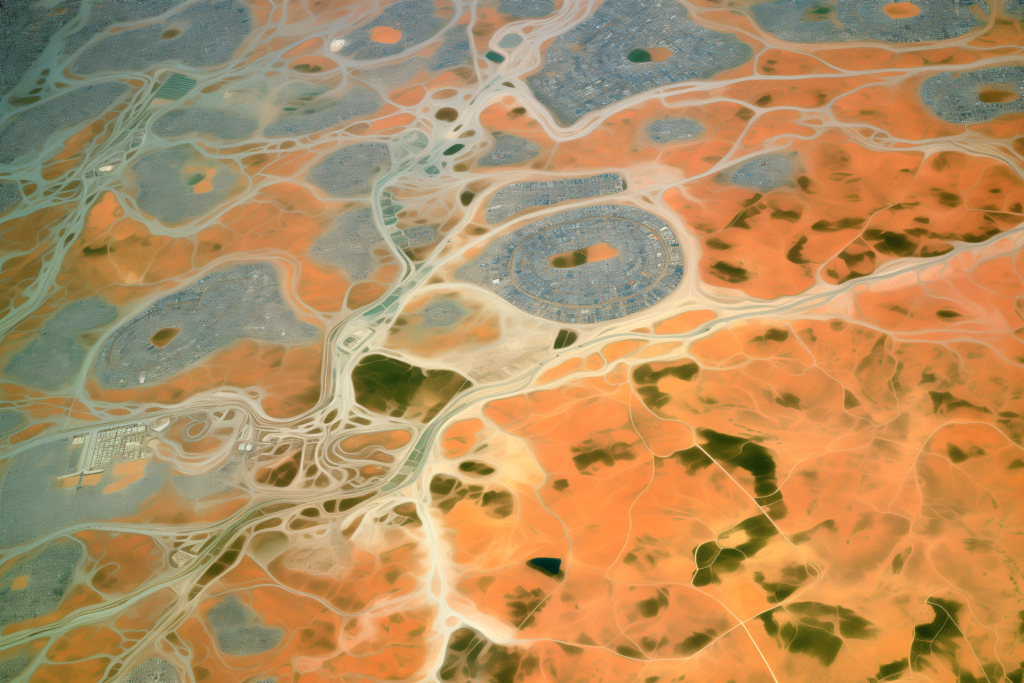
Resilience
is a concept mobilized in urban studies,shaped by sociopolitical forces, and harnessed by communities facing amplified threats.It is not just a reaction, but a proactive tool, empowering adaptation to dynamic challenges, reflecting the concept’s evolution from psychology and ecology to contemporary application.
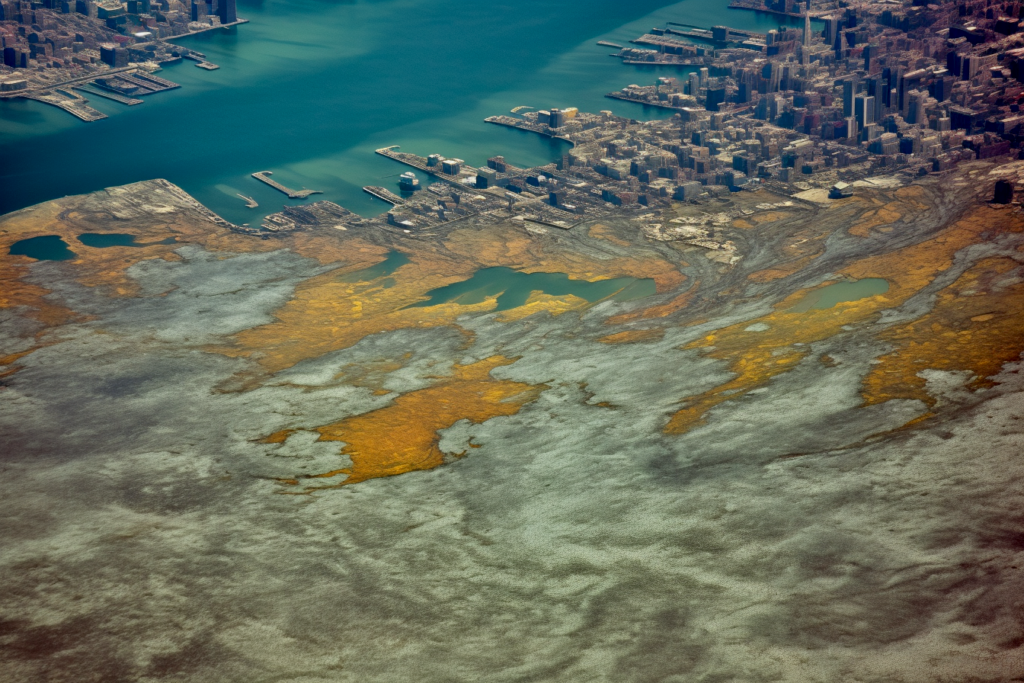
Urban Individual
a kind of urban subjectivity in modern city life. It describes an individual facing a central struggle for autonomy amidst societal pressures. Shaped by rapid stimuli changes, identity is built through resilience .A universal function of modern metropolitan life.
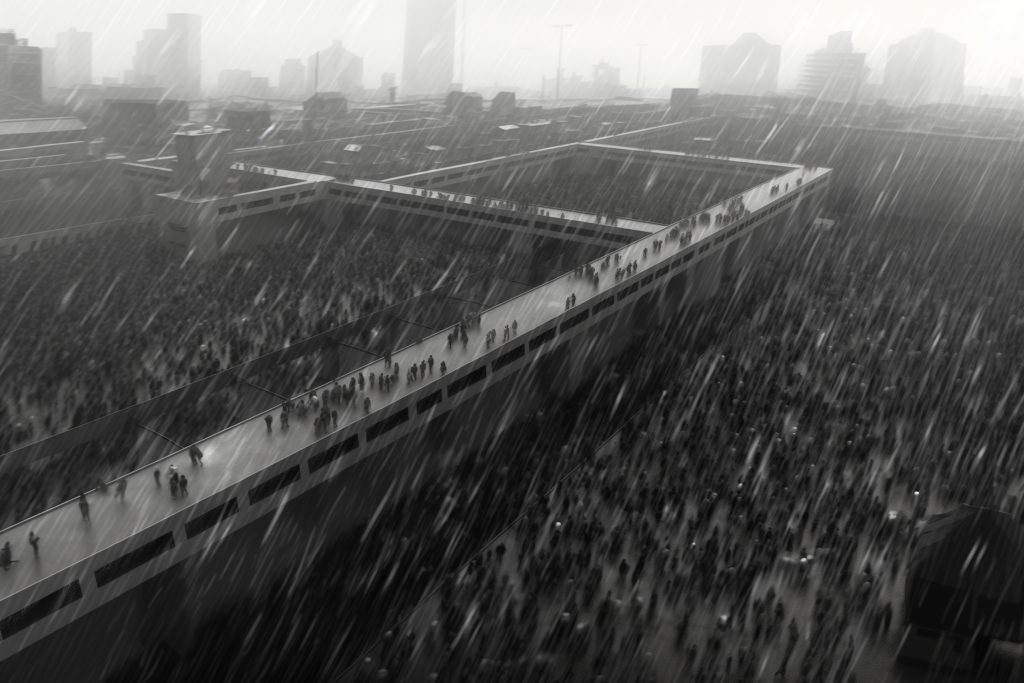
Place – Identity
a kind of urban subjectivity, that sculpts individuality. It is forged from the different spaces people occupy —body, home, community, nation— which shape identity’s mosaic.It offers stability amid flux guiding one’s perception of ever-changing spatial imageries. Through social movements, It transcends mere physicality, shaping the essence of societal existence.
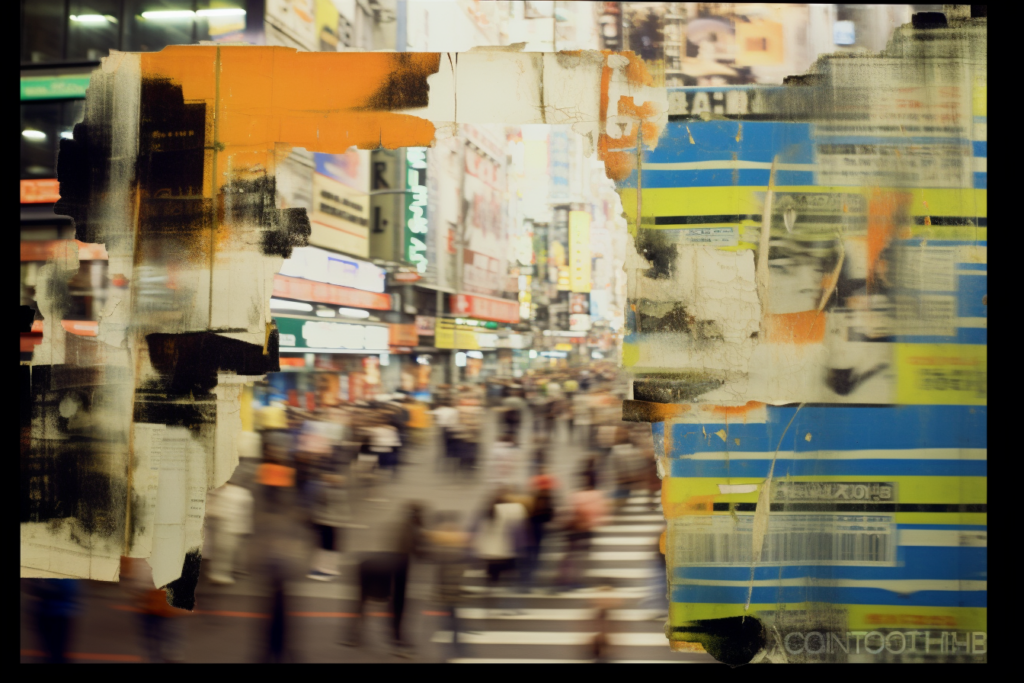
Cyborg
a cybernetic organism, blending machine and biology, traversing realms of reality and fiction. Beyond imagery, it is a tool to understand the self – a fusion of the ephemeral and material. It is an icon of irony, challenging norms rhetorically and politically. it symbolizes fragmented yet interconnected identities in contemporary feminist discourse.
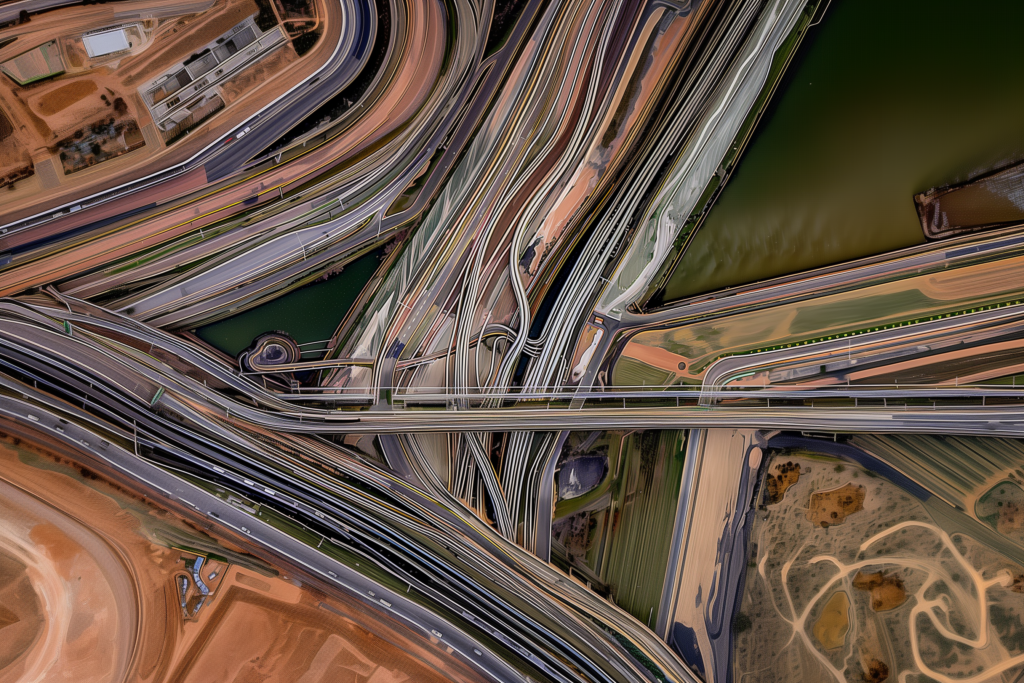
Freedom
a state of being, born from a process of laborious alienation. It defies convention, empowering individuals to shape society actively. It is unfreedom’s antithesis, demanding critical scrutiny of power dynamics. Advocating for fluid thinking, it confronts compulsion with adaptability.

Sources
- ISLANDISATION: S. Wakefield, “Critical Urban Theory in the Anthropocene”
- RESILIENCE: Kian Goh, “Climate Justice and Urban Futures”
- THE URBAN INDIVIDUAL: Georg Simmel, “Metropolis and Mental Life”
- PLACE-IDENTITY: David Harvey, “Time-Space Compression and the Postmodern Condition”
- CYBORG: David Harvey, Donna Haraway, “Cyborg Manifesto”
- FREEDOM: Laboria Cuboniks, “Xenofeminist Manifesto”

